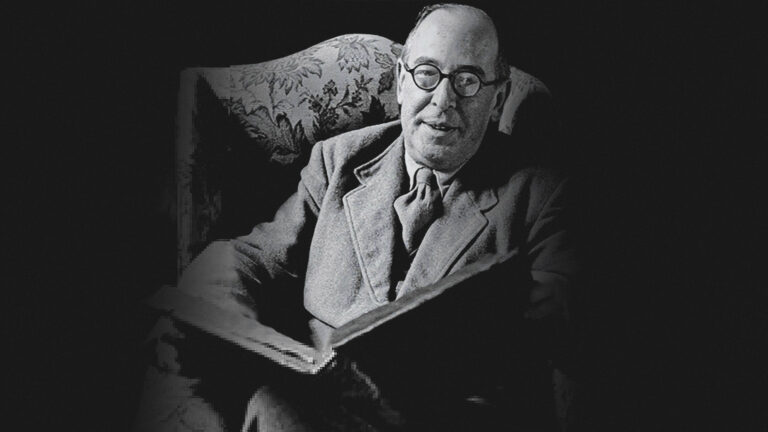A few years ago, I was in London for a conference in honor of the greatest Baptist preacher of the 19th century, Charles Spurgeon. A highlight of that trip was visiting Spurgeon’s grave together with Susannah Spurgeon and her children.
Susannah is the great-great-granddaughter of Charles Spurgeon. She’s a faithful believer whose family loves God and cherishes his Word. At the conference, as she addressed those in attendance, she revisited her great-great-grandfather’s account of his conversion, nearly choking up as she read about the night he was saved.
Visible Answer to an Old Prayer
As special as that moment was, nothing could have prepared me for the power of what came next. It was August 1. There we were in London, nearly 130 years after Spurgeon died, and Susannah decided to read one of the prayers he had composed for a devotional, dated that very day. Here’s what Charles Spurgeon prayed:
O Lord, Thou hast made a covenant with me, Thy servant, in Christ Jesus my Lord; and now, I beseech Thee, let my children be included in its gracious provisions. Permit me to believe this promise as made to me as well as to Abraham. I know that my children are born in sin and shapen in iniquity, even as those of other men; therefore, I ask nothing on the ground of their birth, for well l know that “that which is born of the flesh is flesh” and nothing more. Lord, make them to be born under Thy covenant of grace by Thy Holy Spirit! I pray for my descendants throughout all generations. Be Thou their God as Thou art mine. My highest honor is that Thou hast permitted me to serve Thee; may my offspring serve Thee in all years to come. O God of Abraham, be the God of his Isaac! O God of Hannah, accept her Samuel!
This was a prayer of Charles Spurgeon for his offspring, for his descendants yet unborn. When you read these words out loud, you can’t help but sense his yearning for the spiritual well-being of grandchildren and great-grandchildren. He was praying for future generations.
Years have passed. Decades. More than a century. But there, in London, I listened to those words read by Spurgeon’s great-great-granddaughter—the living embodiment of God’s answer to those prayers from the 1800s.
For Future Generations
One of the Christian songs of the 1990s that has stuck with me is 4Him’s “For Future Generations.” It’s about the importance of holding on to the faith, no matter the cultural winds that blow, not only for the sake of those alive today but also for the generations to come.
We won’t bend and we won’t break,
We won’t water down our faith,
We won’t compromise in a world of desperation.
What has been we cannot change,
but for tomorrow and today,
we must be a light for future generations.
Another song of that era expressed a similar sentiment—Steve Green’s “Find Us Faithful.” The lyrics paint a picture of those who have gone before us, the cloud of witnesses surrounding us as we run the race, cheering us on. The chorus then imagines the moment we’ll be in that cloud and the legacy we’ll leave for those who run the race in the future.
O may all who come behind us find us faithful,
May the fire of our devotion light their way.
May the footprints that we leave lead them to believe,
And the lives we live inspire them to obey.
Both these songs are striking for the responsibility they place on the believer today. We must be a light. We must be faithful. How we live today matters for tomorrow. All this is true. But the emphasis in Scripture falls more on a holy desperation for God to be faithful to keep us and our descendants. Any faithful example we leave is due to the faithfulness of God in preserving us. And that reminds me of a song we find in Scripture.
Song of Zechariah
In Luke 1, the song of Zechariah (the father of John the Baptist) expresses joy in and gratitude for God as the One who keeps his promises. He celebrates God’s promised salvation through the line of David, singing for joy as if he’s fist-pumping the air because God is good to save his people from their enemies and from the hands of those who hate them. God is dealing mercifully with the people of Israel out of love for their ancestors.
Zechariah’s name means “God remembers.” Fitting, isn’t it? That’s why Zechariah praises God. God remembers you and keeps his promises to you. Even better, he keeps the promises he made to our ancestors, to those who’ve gone before us. God remembers every prayer your mom prayed over you, every prayer your grandfather made on your behalf, all the prayers godly men and women of old have prayed for their descendants.
In the late 300s, when Ambrose, the bishop of Milan, saw the fervency and tears with which Monica prayed for her son, he was so moved that he told her, “It is impossible that the son of so many tears should perish.” God answered Monica’s prayer and not only granted her son salvation but gave the church one of the greatest and most influential theologians to ever live: Augustine of Hippo.
Pray for Those Yet to Be Born
Even today, when we sing songs like “The Blessing,” with its call for God’s favor “to be upon us, and a thousand generations, and your family and your children, and their children, and their children,” we’re laying hold of the promises of God, trusting him not only for today but for those who will come tomorrow. And even for those of us whom God may not bless with children, we can still be fathers and mothers in the faith, making disciples who make disciples, with spiritual grandchildren and great-grandchildren who leave an eternal legacy.
If it’s true that God answers prayer, if it’s true that he keeps his promises, if it’s true that—in the words of the Puritan pastor Thomas Boston—“his promise chains mercies together,” perhaps we should widen our horizons, lifting our hearts to the Lord on behalf of all those who will follow in our footsteps. Like Spurgeon, we can pray not only for those alive today but for those who will run the race in the decades and centuries after us. We pray for those yet unborn to one day be born again. O Lord, save our children and our children’s children!
If you would like my future articles sent to your email, as well as a curated list of books, podcasts, and helpful links I find online, enter your address.


















